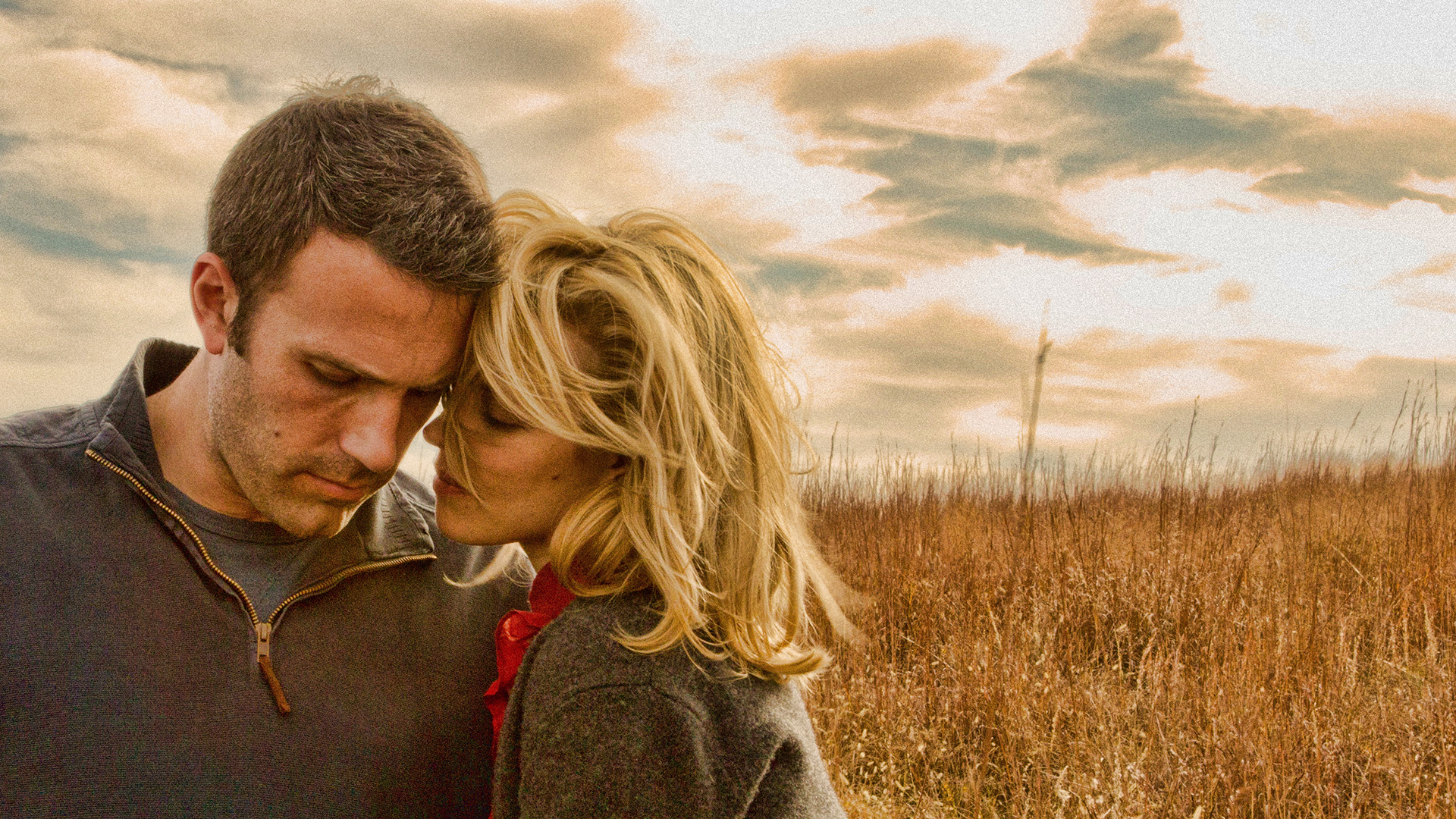To The Wonder: Moments of Sehnsucht

The first time I watched a Terrence Malick film, it was Tree of Life a few years ago and I couldn’t last any longer than 45 minutes. My problem was I didn’t understand how to specifically watch a Terrence Malick film. This is because his movies don’t follow the linear storytelling motif. To The Wonder doesn’t necessarily feel like a movie, with a plot, rising action, and an eventual climax. It feels almost like a reflection of life, it feels more like a memory, or how I would perceive my own life if I was sitting at the end of it looking backwards. Impressionistic, visual poetic moments dancing around as if they were stones skipping across a lake. The story jumps around and the scenes aren’t structured in a way that moves the movie along like baby steps. There are a few times the characters are what appears to be mindlessly wandering around fields with the camera rotating around them. In my opinion, even though this is literally happening in the movie, this is a far more allegorical presentation of the character’s interactions with one another. These moments become more intriguing when there’s an emotional struggle that arises between them.
In some scenes, the main characters are narrating the very story that they themselves are present in, but in a mysterious way that conveys their emotions rather than something literally spoken. It’s almost as if the private feelings that the viewer cannot see are presented in a way for the viewer to be aware of. Some scenes feel almost mystical or as if they’re in a dream state. However, the film doesn’t shy away from moments of romantic failure. It carries with it what some would call a feeling of cynicism, but I believe that deep down it is an honest vulnerability. Some have suggested that the film is inspired heavily from Malick’s own life and I believe it. This movie feels more true and honest than many others, but not in the sense to where it focuses on specific events. It’s not really about the specific events that cause a relationship to fail or succeed, but the longing beyond that or the ethos that flow to those events. This is something that connects all the characters, it is best described as Sehnsucht.
Sehnsucht (pronounced Zehn-zoocht) is a unique German word that describes a profoundly deep emotional state. It originates from an ardent longing or deep yearning that feels almost like a lingering illness. However, these descriptions still don’t adequately convey the core meaning that sehnsucht has, it’s difficult to completely translate. Some psychologists have worked to capture the essence of sehnsucht by identifying its many characteristics. By starting with the initial utopian conceptions of the ideal development one has for themselves. Combined with a sense of incompleteness and imperfection that naturally occurs in life while simultaneously focusing on the past, present, and future. It also contains bittersweet emotions, a reflection and evaluation of one’s life, and also a symbolic richness when one dwells on it.
All the characters experience it in the film, even Father Quintana who seems a little out of place in the story. Even in moments of intimacy with his various partners, Neil (played by Ben Affleck) finds himself with a void where he longs for something different, that something causes him to be indecisive that subsequently ruins his relationships. Marina (played by Olga Kurylenko) is a hopeless romantic, by herself she’s brutally lonely. She ends up chasing romance and intimacy with such fervor that it ends up affecting various aspects of her life, some tragically. Father Quintana (played by Javier Bardem) occasionally interacts with Neil and Marina, but he himself is struggling with his own faith in God. There’s such a relatable agnostic desperation in his prayers; his faith is weakening, but he’s longing for the strength to continue.
There are so many ways to deconstruct this film, but 1 way that I enjoyed is to view the distance traveled for some of the characters. Not in a geographical sense, but more along the lines of an evolutionary one. The difference in Marina, being so crippled by loneliness at the beginning of the film that she ends up finding joy by herself by the end of it. Neil finds the ability to settle down, even though that ends up being with someone else. It almost feels as if this sehnsucht is the force pulling or pushing the characters along. Even in moments of deep intimacy, there’s this unbearable pull toward something beyond. As if they’re hugging, but reaching for something behind their partner. It feels as if the main characters are pursuing something that their partners are standing in the way of and that causes them to think it’s them. They remind me of passing cars on the highway. Close for an instant, only to end up zipping away from one another to fade off into the distance to somewhere where the sehnsucht is drawing them.